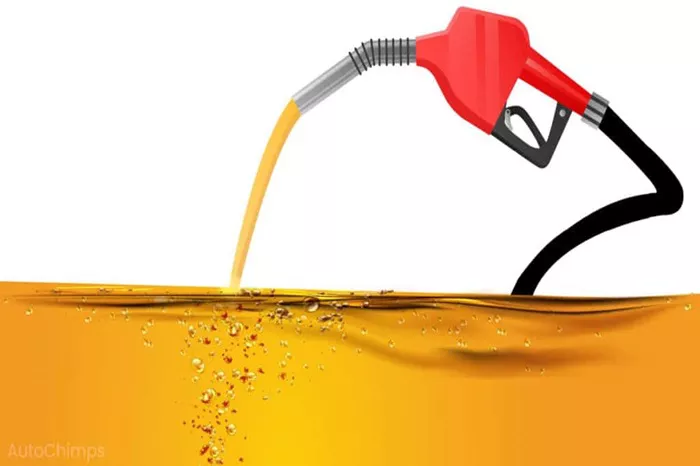The question of whether gasoline is made from fossil fuels is central to understanding modern energy systems and their environmental implications. Gasoline, a widely used fuel primarily for vehicles, is derived from crude oil, which is classified as a fossil fuel. This article delves into the origins of gasoline, the processes involved in its production, and the broader context of fossil fuels in our energy landscape.
Fossil fuels, including coal, oil, and natural gas, originate from the remains of ancient organisms that underwent geological processes over millions of years. The transformation of organic matter into hydrocarbons involves complex chemical reactions driven by heat and pressure deep within the Earth’s crust. Understanding this process is crucial for comprehending how gasoline fits into the larger framework of energy production and consumption.
The Composition of Gasoline
What is Gasoline?
Gasoline is a complex mixture of hydrocarbons derived from crude oil. It primarily consists of alkanes, cycloalkanes, and aromatic hydrocarbons. These compounds are characterized by their carbon-hydrogen bonds, which release energy when combusted.
Types of Hydrocarbons in Gasoline
Alkanes: These are saturated hydrocarbons with single bonds between carbon atoms. They contribute to the energy content of gasoline.
Cycloalkanes: Also known as naphthenes, these hydrocarbons have a ring structure and provide stability to gasoline.
Aromatics: These compounds contain one or more aromatic rings and can enhance the octane rating of gasoline.
Additives in Gasoline
To improve performance and reduce emissions, various additives are blended into gasoline:
Detergents: Prevent engine deposits.
Antioxidants: Enhance stability during storage.
Ethanol: A renewable fuel that reduces greenhouse gas emissions when blended with gasoline.
The Refining Process
Overview of Oil Refining
The refining process transforms crude oil into usable products like gasoline, diesel, and jet fuel. This process occurs in petroleum refineries through several key steps:
Distillation: Crude oil is heated in a distillation column where it separates into different fractions based on boiling points.
Conversion: Heavier fractions undergo processes like cracking (breaking large molecules into smaller ones) to produce lighter products.
Treatment: Various treatments remove impurities such as sulfur and nitrogen compounds.
Gasoline Production
Gasoline production occurs mainly in two stages:
Production of Blendstocks: Refineries create blendstocks, which are intermediate products that require further blending.
Blending: At blending terminals, these blendstocks are mixed with ethanol and additives to create finished motor gasoline.
Variability in Gasoline Formulation
Gasoline formulations can vary based on geographic location and seasonal requirements:
Summer vs. Winter Gasoline: Summer gasoline has lower volatility to reduce evaporation during hot weather.
Regional Specifications: Different areas may have specific regulations for emissions control that affect gasoline composition.
Environmental Impacts
Greenhouse Gas Emissions
The combustion of gasoline contributes significantly to greenhouse gas emissions:
- Approximately 80% of manmade CO2 emissions stem from fossil fuel combustion12.
- Gasoline combustion releases CO2 along with other pollutants like nitrogen oxides (NOx) and volatile organic compounds (VOCs), contributing to smog formation.
Air Quality Concerns
Burning gasoline also impacts local air quality:
- Emissions from vehicles contribute to respiratory issues and other health problems.
- Urban areas often experience higher pollution levels due to vehicle density.
Climate Change Implications
The reliance on gasoline as a primary fuel source has profound implications for climate change:
- Fossil fuel extraction and use are major drivers of global warming.
- Transitioning to renewable energy sources is critical for mitigating climate impacts.
Alternatives to Fossil Fuels
Renewable Energy Sources
As concerns about fossil fuels grow, alternative energy sources are gaining traction:
Solar Energy: Harnessing sunlight through photovoltaic cells or solar thermal systems.
Wind Energy: Utilizing wind turbines to generate electricity.
Biofuels: Derived from organic materials, biofuels can replace gasoline in certain applications.
Electric Vehicles (EVs)
The rise of electric vehicles represents a significant shift away from gasoline:
- EVs utilize electricity stored in batteries instead of internal combustion engines.
- Charging infrastructure is expanding rapidly to support this transition.
Policy Initiatives
Governments worldwide are implementing policies to encourage renewable energy adoption:
- Incentives for electric vehicle purchases.
- Regulations limiting emissions from fossil fuel vehicles.
Emerging Trends In Energy Production
Technological Innovations
Advancements in technology are shaping the future of energy production:
Carbon Capture and Storage (CCS): Techniques aimed at capturing CO2 emissions from fossil fuel combustion before they enter the atmosphere.
Hydrogen Fuel Cells: Utilizing hydrogen as a clean energy source for transportation.
Global Energy Transition
The world is gradually shifting towards more sustainable energy systems:
- Increased investment in renewable energy technologies.
- International agreements aimed at reducing greenhouse gas emissions.
Conclusion
Gasoline is indeed made from fossil fuels, specifically crude oil derived from ancient organic matter subjected to geological processes over millions of years. While it has powered modern transportation and economies, its environmental impact cannot be overlooked. As society seeks sustainable alternatives, understanding the relationship between gasoline and fossil fuels is crucial for navigating the transition towards cleaner energy sources.
In summary, while gasoline remains a dominant fuel today, future trends indicate a significant shift towards renewable energy solutions that aim to mitigate climate change impacts and promote environmental sustainability.
Related topic:
What is the Ethanol Content of Regular Gasoline?

